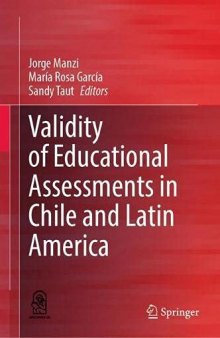 جزییات کتاب
جزییات کتاب
This edited volume presents a systematic analysis of conceptual, methodological and applied aspects related to the validation of educational tests used in Latin American countries. Inspired by international standards on educational measurement and evaluation, this book illustrates efforts that have been made in several countries to validate different types of educational assessments, including student learning assessments, measurements of non-cognitive aspects in students, teacher evaluations, and tests for certification and selection. It gathers the experience of validity studies from the main international assessments in Latin America (PISA, TIMSS, ERCE, and ICCS). Additionally, it shows the challenges that must be taken into account when evaluations are used to compare countries, groups or trends of achievement over time. The book builds on the premise that measurements in the educational field should not be used if there are no studies that support the validity of the interpretation of their scores, or the use made of such tests. It shows that, despite the recognition given to validity, relatively few educational measurement assessments have accumulated enough evidence to support their interpretation and use. In doing so, this volume increases awareness about the relevance of validity, especially when assessments are key component of educational policies.



 دانلود کتاب
دانلود کتاب

 جزییات کتاب
جزییات کتاب




 این کتاب رو مطالعه کردید؟ نظر شما چیست؟
این کتاب رو مطالعه کردید؟ نظر شما چیست؟
